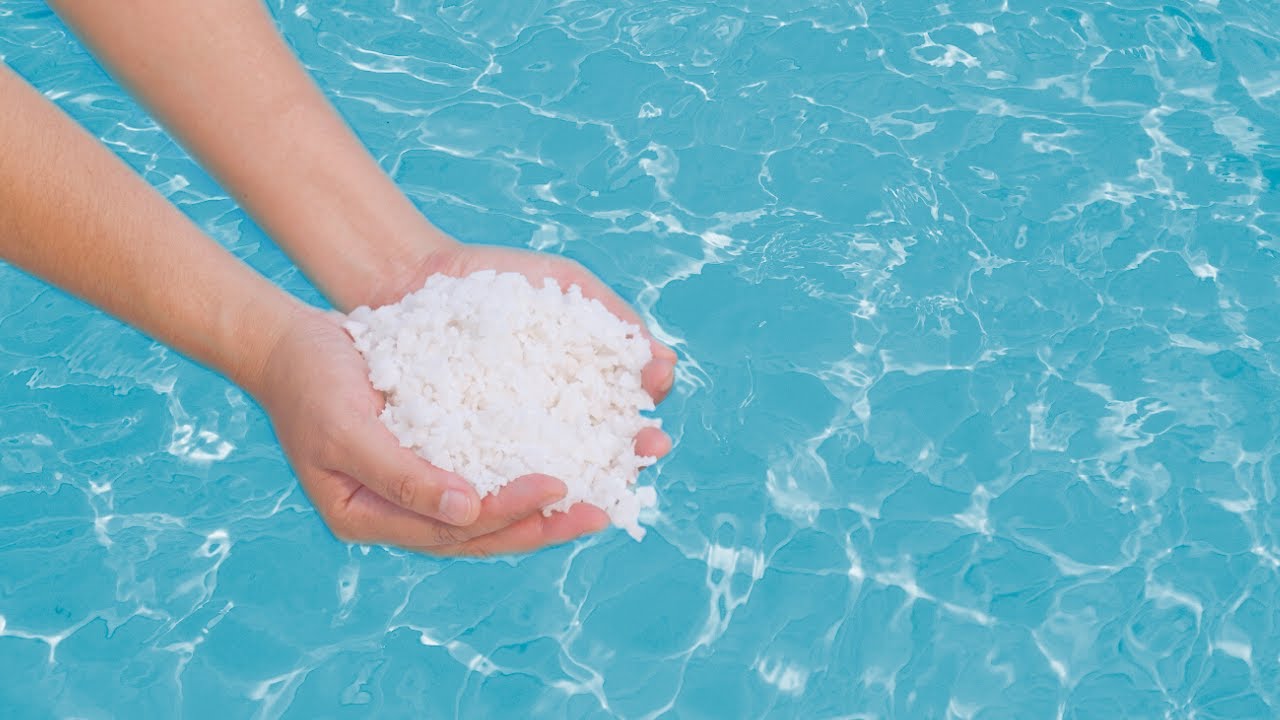Saltwater pools have gained popularity as an alternative to traditional chlorine pools, offering a more natural and gentler sanitization method. However, despite their advantages, also present certain disadvantages saltwater pools that potential owners should consider before making the switch. Understanding these drawbacks and implementing effective mitigation strategies can help ensure a positive and enjoyable saltwater pool experience.
Common disadvantages of saltwater pools
- Higher initial cost: Saltwater pools typically have a higher upfront installation cost compared to chlorine pools due to the specialized equipment required, such as a salt chlorinator and a dedicated pump.
- Corrosion concerns: Saltwater can accelerate corrosion of metal components in and around the pool, including pool ladders, diving boards, and plumbing fixtures. Proper material selection and regular maintenance can minimize corrosion risks.
- Potential for algal growth: While saltwater pools produce chlorine, they are still susceptible to algae growth, especially if the salt chlorine generator is not functioning properly or if the salt level is too low. Regular monitoring and adjustments are crucial.
- Sensitivity to metal ions: Saltwater pools are more sensitive to the presence of metal ions, such as copper or iron, in the water source. These ions can react with chlorine, reducing its effectiveness and potentially staining pool surfaces. Regular testing and treatment may be necessary.
- Maintenance requirements: Saltwater pools require regular maintenance to ensure proper salt levels, chlorine production, and overall system function. While less frequent than chlorine pools, saltwater pools still demand consistent attention.
Mitigating disadvantages through practical solutions
- Corrosion prevention: Choose pool components made from corrosion-resistant materials, such as stainless steel or composite materials. Regularly inspect metal components for signs of corrosion and address them promptly.
- Algae control: Maintain proper salt levels and ensure the salt chlorine generator is functioning correctly. Implement regular pool skimming, vacuuming, and brushing to remove debris and prevent algae growth.
- Metal ion management: Test the pool water regularly for metal ions and treat the water as needed to remove or chelate them. Consider using a water softener if the metal ion content is consistently high.
- Regular maintenance: Establish a routine maintenance schedule that includes checking salt levels, inspecting the salt chlorine generator, and testing water chemistry. Promptly address any issues to prevent further problems.
- Professional assistance: Seek guidance from a qualified pool technician for installation, maintenance, and troubleshooting of saltwater pool systems. Their expertise can help prevent issues and ensure optimal pool performance.

Benefits of saltwater pools over freshwater pools: a comprehensive overview
Saltwater pools have gained immense popularity in recent years, offering a compelling alternative to traditional chlorine-treated pools. While both types serve the purpose of providing recreational water features, saltwater pools stand out due to their numerous advantages in terms of swimming experience, maintenance, safety, cost-effectiveness, and environmental impact.
Enhancing the Swimming Experience: A Gentler Touch for Skin and Eyes
- Softer sensation: Saltwater pools provide a noticeably softer and more pleasant swimming experience compared to chlorine pools. The salinity of the water mimics the natural salt content of tears, preventing the stinging and irritation often associated with chlorine. This gentle touch is particularly beneficial for individuals with sensitive skin, allergies, or eye conditions.
- Reduced chlorine odor: Unlike the strong, often unpleasant chlorine odor that permeates traditional pools, saltwater pools emit a subtle, natural scent. This difference is attributed to the reduced need for harsh chemical additives, creating a more refreshing and inviting pool environment.
Streamlined maintenance: less effort, more enjoyment
- Minimal chemical requirements: Saltwater pools utilize a salt generator, a self-regulating system that converts salt into chlorine, significantly reducing the need for manually adding harsh chemicals. This not only simplifies pool care but also minimizes the storage and handling of hazardous substances.
- Simplified maintenance tasks: The automated salt chlorination system in saltwater pools handles a significant portion of the sanitization process, leaving pool owners with less manual maintenance compared to chlorine pools. This translates to less time spent on upkeep and more time enjoying the pool.
Prioritizing safety: a healthier environment for swimmers
- Allergy-friendly: Saltwater’s reduced chemical content makes it a more allergy-friendly option compared to chlorine pools. The lower levels of irritants and harsh chemicals minimize the risk of allergic reactions, skin rashes, and respiratory issues, particularly for sensitive individuals.
- Stable chlorine levels: Saltwater pools maintain consistent chlorine levels, eliminating the fluctuations that often occur in chlorine pools. This stability prevents the unpleasant side effects associated with excessive or insufficient chlorine, such as itchy skin, red eyes, and strong chlorine odor.
Cost-effectiveness: a sustainable investment for long-term savings
- Reduced chemical expenses: The lower reliance on chemical additives in saltwater pools translates into significant savings over time. The reduced need for chlorine, algaecides, and other pool chemicals contributes to a more cost-effective pool ownership experience.
- Extended equipment lifespan: Saltwater’s gentler nature on pool components, compared to the corrosive effects of chlorine, extends the lifespan of pool equipment. This reduces the frequency of replacements and associated costs, further enhancing the long-term cost-effectiveness of saltwater pools.
Environmental stewardship: a greener choice for our planet
- Minimized chemical release: Saltwater pools release fewer harmful chemicals into the environment compared to chlorine pools. The reduced use of harsh chemicals minimizes the environmental impact associated with pool maintenance, contributing to a more sustainable choice.
- Energy-efficient operation: Saltwater pool generators typically operate with greater energy efficiency compared to traditional chlorine systems. This energy-saving advantage further reduces the environmental footprint of saltwater pools.
Saltwater pools emerge as a compelling choice for those seeking a superior swimming experience, simplified maintenance, enhanced safety, long-term cost savings, and a reduced environmental impact.
Conclusion
However, understanding the associated disadvantages of Saltwater pools and implementing effective mitigation strategies are essential for making informed decisions and ensuring a positive saltwater pool experience. By carefully considering these factors and adopting proactive measures, pool owners can reap the advantages of saltwater pools while minimizing potential drawbacks and enjoying the refreshing allure of their own aquatic oasis.
Visit: Green pool water.

